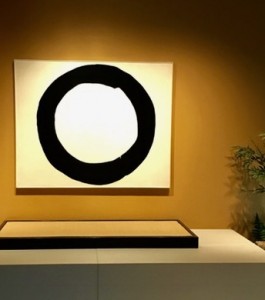 Like most acupuncturists, I see a good number of chronic cases: people with diseases lasting three months or more. Pain that won’t go away, chronic fatigue, insomnia, and a host of other diseases can inspire people to turn to acupuncture. These diseases often have many factors contributing to their root causes.
Like most acupuncturists, I see a good number of chronic cases: people with diseases lasting three months or more. Pain that won’t go away, chronic fatigue, insomnia, and a host of other diseases can inspire people to turn to acupuncture. These diseases often have many factors contributing to their root causes.
Every acupuncturist, according to their treatment style, has a different protocol in treating chronic cases. This is my usual course of action: I see the patient once a week for a few weeks. My treatments for this initial period of working together are ‘strong,’ which means I usually treat multiple factors that are contributing to the patient’s discomfort.
If there is an improvement, I like to take some time off from treating (usually about a month). Then I can reassess the case to see whether the improvement ‘held’ and how significant it is. Perhaps no more acupuncture will be needed at all. Perhaps once a season or once a month will be sufficient. Perhaps another course of treatments might help even more.
The goal is not to continue to rely on acupuncture in order to feel better. Rather, acupuncture is used to retrain the body to function more efficiently (without the symptoms of pain or discomfort). Here is the catch. Along with acupuncture, other changes might need to be made. I often talk about the need for a diet and exercise that supports our unique needs, as well as a lifestyle that we like. In addition to treatment, most begin to look at these and at other important areas of their lives:
Relationships: Not happy with how things are working out with the people in your life? Can’t really move to a different part of the country, or change jobs or magically change your family and friends to others you might like better? You know what ‘they’ say: “You can’t really change others but you have the power to change yourself.” Maybe an attitude adjustment is needed, but maybe you need some help. Try talking with a mental health professional. Find someone to help you explore your mental state, become aware of old patterns, and let go of them. This often takes time and commitment. Remember, it took years to build those patterns. It may take a while to replace them with healthier ways of being in the world.
Exercise: My father is 93. I have written about him before. He gets around on his own, goes for walks every day and can still squat to the floor. He has no arthritis. He often gives advice only because people naturally want to know how he has stayed in such good shape.
“Keep moving. Move it or lose it,” he will say. I agree. Interestingly, Dad was not always in good shape. He didn’t become fit until he turned 60. He had been overweight, his joints bothered him (especially his knees), and he had high blood pressure. He had some major life events a couple of years prior to turning 60. As a result, he sold his home and quit his job. He got a job he really liked, working in a golf pro shop. He started jogging about a mile a day, around a field close to our home.
It does not really matter how you “keep moving,” only that you somewhat enjoy it and that it fits conveniently into your daily or weekly routine. If you currently have no exercise in your routine, my advice is to start small and keep it simple: walk out your door, walk for 10 minutes, turn around and come home. 20 minutes of exercise, done! Your circulation gets a chance to move, your mind can clear, and it is relatively easy. Do that 3-5 times a week. Add a little more time or speed gradually. Go with a friend. Get some new shoes or a new outfit to walk in. Whatever will help you want to do it … go for it. Be creative.
Diet: I believe that everyone has unique needs at different times when it comes to diet. I know that I feel best when I eat three meals a day with some healthy snacks (apple/ banana/ nuts) in between. I eat a wide variety but try not to indulge a lot of sugar except when I am at a birthday party, or maybe some dark chocolate from Trader Joe’s. For me, the “everything in moderation” works. Many have specific diet requirements that are necessary. Find out what works best for you. Don’t overeat. Try to get enough of the daily requirements for vitamins and minerals. Get some support from a good nutritionist if you need it.
In a nutshell, the course of action for chronic disease often requires change in one’s life – whether it is an attitude adjustment, an exercise routine, or a simple change to diet – in addition to the acupuncture treatments. Whatever you change, remember, it is summer. Having a little fun and laughter can go a long way toward helping you feel better. Be sure to make some room for that as well!







Leave a Reply